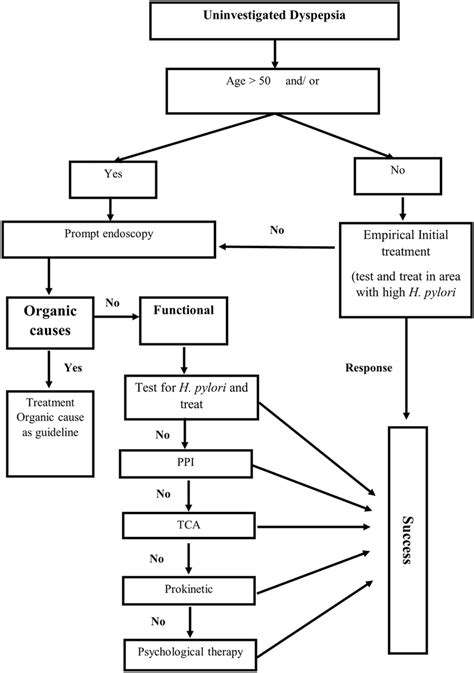Exploring Functional Dyspepsia and Anxiety: Understanding the Link
Understanding Functional Dyspepsia (FD)
Functional dyspepsia occupies a challenging space in gastroenterology, where symptoms persist despite normal anatomical findings. The condition's chronic nature frequently leads to frustration and healthcare utilization. What distinguishes FD from other digestive disorders is its strong bidirectional relationship with psychological factors, particularly anxiety. This connection has prompted researchers to investigate shared neural pathways between emotional processing centers and digestive function.
The Role of Anxiety in FD
Anxiety doesn't merely coexist with FD—it actively influences symptom perception and severity. The amygdala and other fear-processing brain regions demonstrate heightened activity in FD patients, particularly during symptom episodes. This neural hypersensitivity helps explain why stress so frequently precipitates or worsens digestive discomfort in susceptible individuals. Furthermore, anxiety-induced changes in gut motility and secretion patterns create physiological conditions ripe for symptom generation.
Anxiety Symptoms and FD Manifestations
The overlap between anxiety and FD symptoms creates diagnostic challenges. Patients may struggle to distinguish between anxiety-related gastrointestinal sensations and primary digestive symptoms. Common overlapping features include nausea, epigastric tightness, and appetite changes. Seasoned clinicians learn to identify subtle clues, such as symptom timing relative to stressful events, that help differentiate primary FD from anxiety-driven symptoms.
FD Symptoms and Anxiety Interactions
This relationship often becomes cyclical—digestive discomfort increases anxiety, which then amplifies symptom perception. Many patients develop anticipatory anxiety around meals or social dining situations. Breaking this cycle requires simultaneous attention to both gastrointestinal and psychological aspects, which explains why conventional acid-reducing medications alone often prove insufficient.
Management Strategies: Addressing Anxiety and FD
Integrated treatment plans yield the best outcomes. Dietary modifications should accompany stress management training, with cognitive restructuring techniques helping patients reinterpret bodily sensations. Recent studies demonstrate that gut-directed hypnotherapy produces durable benefits for approximately 60% of FD patients, likely by modulating brain-gut communication pathways.
Seeking Professional Help: A Holistic Approach
Optimal care typically involves gastroenterologists working alongside mental health professionals. This team approach ensures comprehensive evaluation and coordinated treatment. Patients should seek providers experienced in functional gastrointestinal disorders, as they're best equipped to navigate this complex interface between physical and mental health.
The global energy transition creates fascinating career crossovers, with many petroleum engineers successfully transitioning to geothermal energy roles. Their subsurface expertise translates surprisingly well to this renewable sector.

Seeking Professional Support: The Importance of a Multidisciplinary Team

Seeking Professional Guidance for Emotional Well-being
Professional mental health support represents one of the most impactful investments individuals can make in their overall health. Unlike casual conversations with friends, therapeutic relationships provide structured, evidence-based approaches to emotional challenges. Many patients report that simply having a dedicated time and space to process experiences brings substantial relief.
Understanding the Benefits of Therapy
Therapeutic modalities differ in their approaches but share common benefits. Quality therapy helps individuals develop metacognitive skills—the ability to observe and adjust their own thought patterns. This skill proves particularly valuable for FD patients, as it enables them to distinguish between normal digestive sensations and pathological symptoms.
Identifying the Right Type of Support
Matching therapeutic approach to individual needs maximizes outcomes. Acceptance and Commitment Therapy (ACT) shows particular promise for chronic conditions like FD, emphasizing psychological flexibility rather than symptom elimination. Patients should consider their learning style and personality when selecting therapeutic approaches—some thrive with structured CBT worksheets while others prefer more exploratory psychodynamic work.
Addressing Specific Challenges
Therapy proves most effective when focused on concrete concerns. For FD patients, this might involve developing coping strategies for dining out or managing work stress. Targeted interventions often produce more measurable progress than vague discussions of feeling better. Many therapists now incorporate biofeedback techniques that provide real-time data on stress responses.
Finding a Qualified Professional
Credentials matter, but therapeutic alliance matters more. The most effective therapists combine professional expertise with the ability to establish genuine connection. Patients should feel comfortable yet challenged during sessions. Many healthcare systems now offer integrated behavioral health services within gastroenterology practices, eliminating traditional barriers to mental healthcare.
Building a Support System
While professional help remains essential, social support provides complementary benefits. FD-specific support groups offer unique advantages by connecting individuals facing similar challenges. These communities often share practical coping strategies that clinicians might overlook. However, patients should vet online communities carefully, as some may promote unverified treatments.